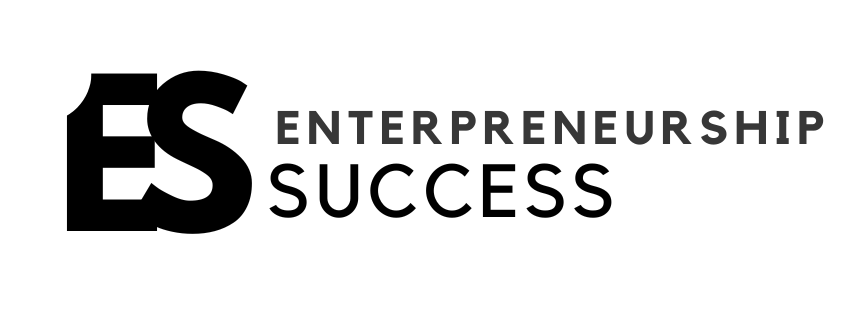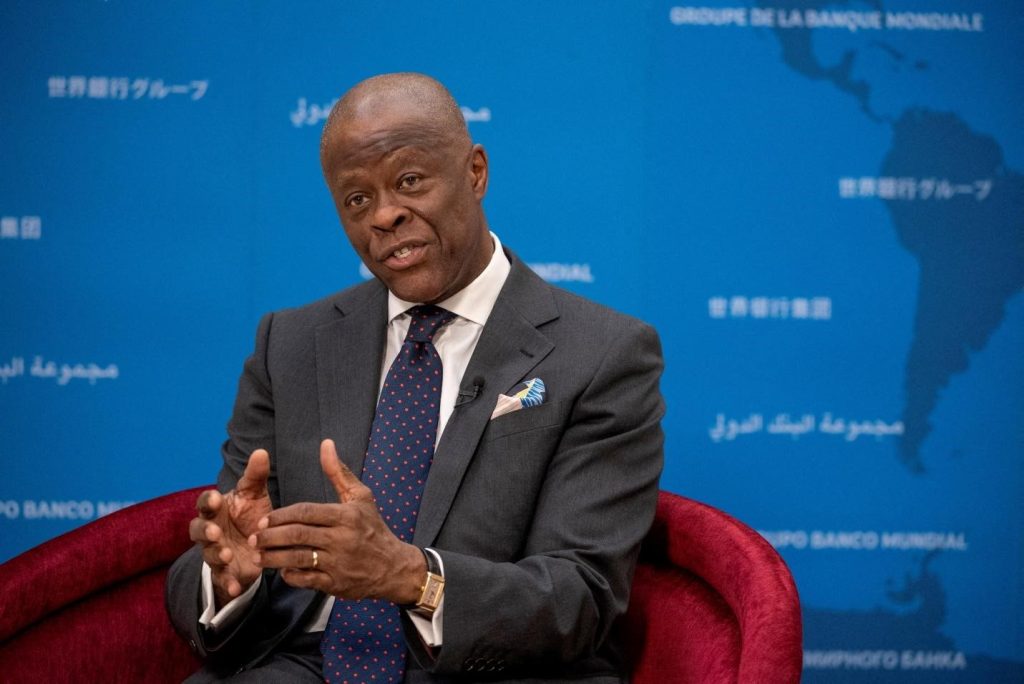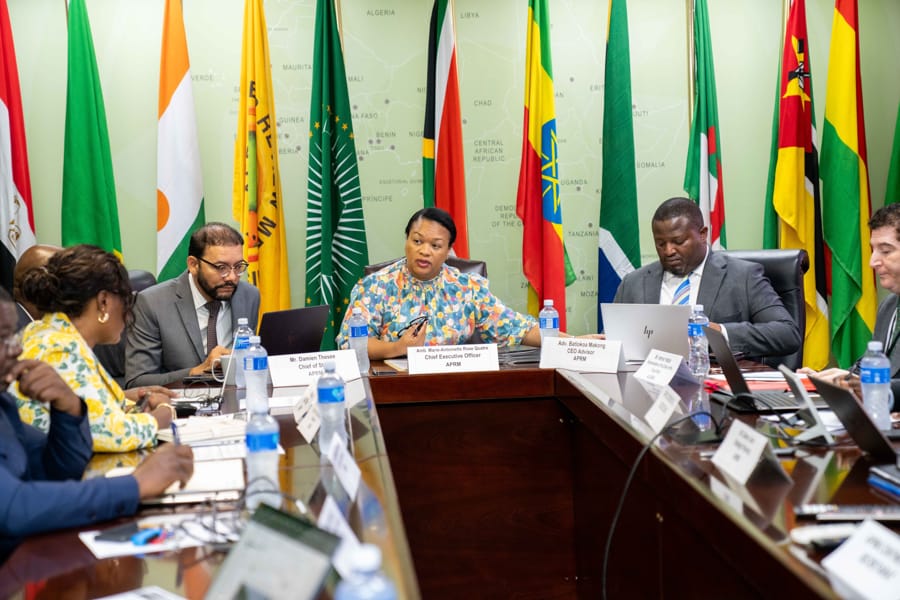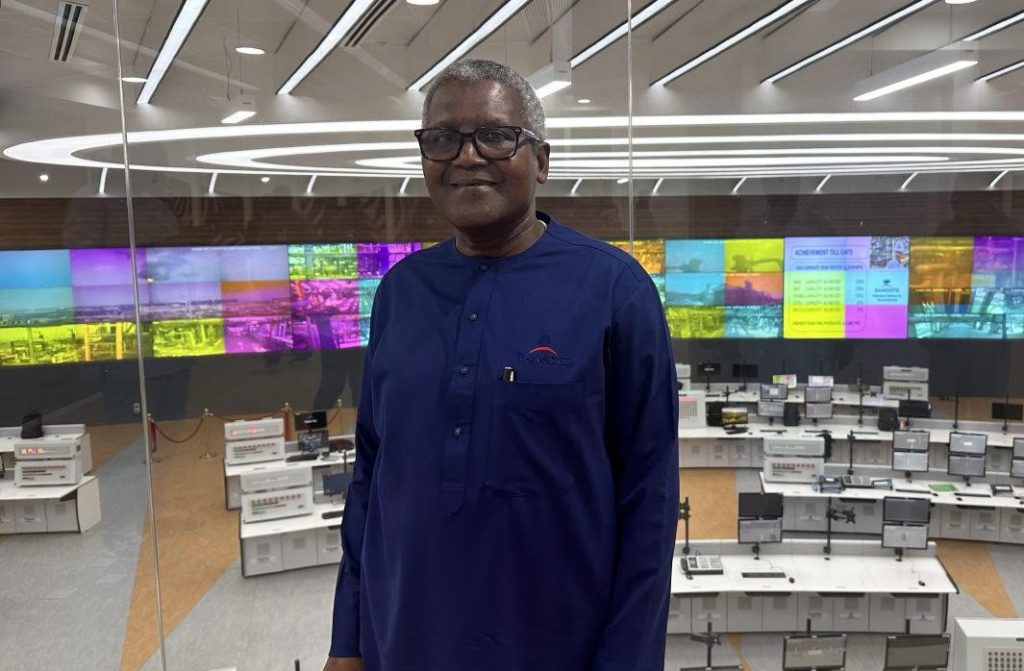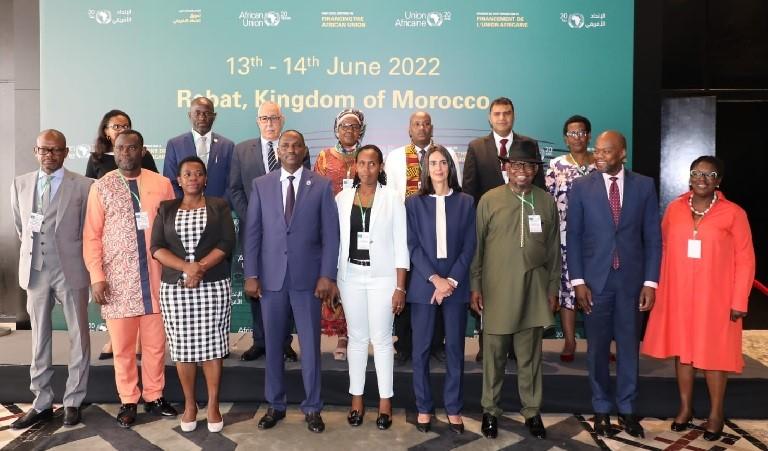ES.Ng
ES.Ng
NIGERIA’S ECONOMIC RECOVERY AGENDA
Under President Bola Ahmed Tinubu’s administration, Nigeria’s economic recovery efforts are coordinated through various government agencies and strategic initiatives rather than a single dedicated agency. Key components include: 1. National Economic Council (NEC): Chaired by Vice President Kashim Shettima, the NEC advises the President on economic policy and includes state governors and the Central Bank Governor. It plays a pivotal role in shaping and implementing economic strategies. 2. Federal Ministry of Finance: Led by Minister Wale Edun, this ministry oversees fiscal policies, budgeting, and financial regulations. It is instrumental in implementing reforms aimed at economic stabilization and growth. 3. Budget Office of the Federation: Responsible for budget preparation and implementation, this office ensures alignment with national economic objectives. In 2024, President Tinubu appointed Tanimu Yakubu as its Director General. 4. Revenue Mobilisation Allocation and Fiscal Commission (RMAFC): This commission advises on revenue allocation and fiscal matters, contributing to the equitable distribution of resources. 5. National Credit Guarantee Company: Set to be established in May 2025, this entity aims to enhance credit access for businesses and individuals, fostering economic growth. President Tinubu’s administration has initiated several reforms, including the removal of fuel subsidies and currency devaluation, to address economic challenges. These measures have led to increased living costs, prompting both support and criticism. In summary, Nigeria’s economic recovery under President Tinubu is managed through a collaborative framework involving multiple agencies and strategic reforms, each contributing to the nation’s economic revitalization. Reforms, fiscal gains signal Nigeria’s economic recovery Finance Minister— Edun He made the disclosure in Abuja during the 2025 budget defense before the Senate Committee on Finance Joseph Inokotong. The Minister of Finance and Coordinating Minister of the Economy, Mr Wale Edun, has stated that Nigeria’s economy is making significant strides in recovery and growth. Edun, who was joined by the Minister of State for Finance, Dr. Doris Uzoka-Anite, the Permanent Secretary, Federal Ministry of Finance, Mrs. Lydia Shehu Jafiya, the Accountant General of the Federation, Dr. Oluwatoyin Sakirat Madein, as well as the Ministry’s Directors, outlined the President Bola Ahmed Tinubu-led Administration’s efforts to stabilise the economy through key reforms and fiscal measures. Edun highlighted the broad impact of the reforms to include the liberalisation of the foreign exchange market, deregulation of petroleum pricing, and the expansion of domestic refining capacity. He explained that these measures are driving fiscal stability, reducing inefficiencies, and creating a more sustainable economic framework. The Minister acknowledged, however, that while the reforms may bring short-term discomfort, their long-term benefits will include job creation, poverty reduction, and greater economic resilience. He emphasized the government’s commitment to infrastructure development, particularly in digital networks and energy, to improve productivity and attract private sector investments. In a statement, Mohammed Manga, Director, Information and Public Relations in the Federal Ministry of Finance said the Senate Committee on Finance approved the Ministry’s N38 billion 2025 budget. They commended the Ministry’s leadership for its commitment to fiscal discipline and economic recovery. Edun expressed confidence in Nigeria’s brighter economic future, noting that the reforms will transform the country’s economic landscape and improve the standard of living. Under the leadership of Vice President Kashim Shettima, the National Economic Council (NEC) has undertaken several initiatives aimed at bolstering Nigeria’s economic stability And growth. Key outcomes from recent NEC meetings include: 1. Food Security and Agricultural Support In February 2024, the NEC addressed challenges in the agricultural sector by focusing on enhancing food security and affordability. The council resolved to make fertilizers more accessible to farmers and proposed the establishment of Agro-Rangers to safeguard farms from insecurity. Vice President Shettima, emphasized the importance of collaborative efforts to develop actionable strategies for overcoming economic challenges. 2. Economic Stability and Policy Reforms At the 136th NEC meeting in September 2023, Vice President Shettima highlighted economic stability as a priority for the Tinubu administration in 2024. He urged federal, state, and local governments to re-evaluate priorities, streamline processes, and make bold decisions addressing social issues such as social protection, investment, and nutrition. The Vice President commended President Bola Ahmed Tinubu’s courage in implementing bold reforms to re-position the economy. 3. Combating Malnutrition In September 2024, the NEC endorsed the N-774 programme as a primary platform to combat malnutrition across Nigeria. This decision followed a presentation on the nation’s nutritional status by the Coordinating Minister of Health and Social Welfare, Ali Pate. The council resolved to prioritize nutrition interventions in the 2025 budget at all government levels and encouraged development partners to provide financial and technical assistance for monitoring and scaling successful interventions. 4. Data Collection and Technological Integration During the 2024 World Population Day commemoration, Vice President Shettima emphasized the need for improved data collection and technological deployment to generate comprehensive evidence guiding government decisions and investments. He advocated for the use of advanced technology to strengthen data systems and institutions, which would support resilient and equitable development pathways. 5. Addressing Economic Challenges and Poverty In December 2023, Vice President Shettima called for a strong alliance among all government levels and development partners to alleviate poverty and enhance Nigerians’ quality of life. He stressed the importance of aligning efforts to create an environment where every citizen has the opportunity to thrive. These initiatives reflect the NEC’s commitment to addressing Nigeria’s economic challenges through collaborative and strategic approaches under Vice President Shettima’s leadership. Source: Federal Ministry of Information Under President Bola Tinubu’s leadership, Nigeria has undertaken significant economic reforms aimed at stabilizing and revitalizing the economy. Here’s an overview of the outcomes in key areas: 1. Fuel Subsidy Removal: In May 2023, President Tinubu announced the removal of the longstanding fuel subsidy, a move that had been draining substantial government resources. By July 2023, the government reported savings exceeding 1 trillion naira (approximately $1.32 billion) within just over two months of subsidy removal. However, the immediate aftermath saw a sharp increase in fuel prices, leading to widespread public protests and economic hardship for many Nigerians. In response, the government partially reversed the subsidy removal by capping retail fuel and
Meetings: AU Summit
Congolese people displaced following recent clashes between the M23 rebels and the Armed Forces of the Democratic Republic of the Congo (FARDC), leave the camps and return to their homes after the M23 rebels instructed them to vacate the camps in the outskirts of Goma, Democratic Republic of the Congo February 12, 2025. NAIROBI, Feb 14 – Congo’s war tops the agenda at this weekend’s African Union summit but chances of diplomatic progress are slim as rebels advance and Rwanda’s leader, accused of backing them, has vowed to “spit in the face” of anyone punishing him for his actions. The advance of M23 rebels through eastern Congo has triggered fears that Africa’s Great Lakes region risks slipping back into a broader war sucking in neighboring armies, reminiscent of conflicts in the 1990s and 2000s that killed millions. The AU summit in Addis Ababa on Saturday 15th and Sunday 16th of February is meant to be the next stage in regional efforts to halt the conflict. But rebels ignored calls for peace at a summit last week and have pushed towards Bukavu, some 200 km south of Goma, eastern Congo’s biggest city which was seized last month. “I think this is the most serious crisis in Africa right now. It is time for the African Union to show its strength,” Stephanie Wolters, senior research fellow at the South African Institute of International Affairs, told Reuters. World leaders have called for Rwanda to cut its support for the M23 fighters, which U.N. experts say includes troops and advanced military hardware. The United States has warned of possible sanctions against Rwandan and Congolese officials. The European Parliament on Thursday urged the European Union to freeze direct budget support for Rwanda. But President Paul Kagame remains defiant. Rwanda has repeatedly denied backing M23 but says it will do everything necessary to defend itself from Hutu militants in Congo that Kigali, and M23, says remain bent killing Tutsis and attacking Rwanda 30 years after the 1994 genocide. EXISTENTIAL THREATS M23 is the latest in a string of Rwanda-backed rebel movements in Congo to cite this threat as they take up arms in the eastern borderlands, which are far from the capital, Kinshasa, and rich in minerals. “We have faced existential threats for years. We had the worst tragedy in ’94. You really come to me and start threatening … sanctions because I am defending myself? And you think I have any iota of fear for that?” Kagame told France’s Jeune Afrique magazine. He recalled an episode from the genocide, when he said a woman about to be killed was told to choose how she would prefer to be killed. Instead, he said, she spat in the face of her assailants. “You can imagine how much I am going to spit in the face of anyone who tells me to choose between which death I should face,” he said. Congo’s President Felix Tshisekedi travelled to Germany on Thursday, 20th to take part in the Munich Security Conference, where he would seek greater international involvement resolving Congo’s crisis, his office said in a post on X. He is due to continue to the AU summit afterwards, a source in the presidency said. M23 rebels last seized Goma in 2012. It only briefly held the city before withdrawing under intense international pressure, threats of aid cuts to Rwanda and an aggressive African force defeated the rebels. This time, though, experts say there is more reluctance to take on Rwanda and the multitude of other global crises is eating into world leaders’ attention. The M23 advance south has been slowed by Congolese forces backed by thousands of Burundian troops, which have also deployed into Congo. Tensions between Burundi and Rwanda run high, adding to regional tensions. Source: The Reuters
African leaders to push for slavery reparations despite resistance
Meeting: Opening of the 37th Ordinary Session of the Assembly of the African Union at the African Union Headquarters, in Addis Ababa, Ethiopia. February 17, 2024 Feb 13: African leaders meeting in Ethiopia this weekend are to launch a new push for slavery and colonial reparations, but can expect to be stonewalled by former colonial powers, most of which have ruled out making amends for historical wrongs. While the issue of reparations has gained momentum worldwide, so has the backlash. U.S. President Donald Trump has said he “doesn’t see it (reparations) happening,” and many of Europe’s leaders have opposed even talking about it. At the African Union summit in Addis Ababa, leaders plan to shape a “unified vision” of what reparations may look like, from financial compensation and formal acknowledgement of past wrongs to policy reforms. “Reparations is the hot topic in Addis Ababa,” the AU’s economic, social, and cultural council, ECOSOCC, wrote on X. From the 15th to the 19th century, at least 12.5 million Africans were kidnapped, forcibly transported by mostly European merchants, and sold into slavery. The debate on reparations needs to address the legacy of colonialism and slavery today, from racism to the economic disparities between Africa and wealthy Western nations, said ECOSOCC, which has been advising member states on the issue. “It is increasingly becoming impossible to not acknowledge the damage caused by slavery and colonialism,” said Zimbabwean lawyer and reparations expert, Alfred Mavedzenge. The continent’s debt crisis can be traced back to African nations being saddled with heavy debts upon independence. Climate change can also be linked to colonialism: Africa is responsible for just a fraction of carbon emissions, but its fragile ecosystems have borne the brunt of global warming. ‘MORE THAN JUST COMPENSATION’ Much of the debate around reparations, particularly in former colonial powers such as Britain and Portugal, has focused on financial payments, but advocates say making amends for the past can take many forms. M-23 rebels advanced into the heart of the Congolese city of Bukavu on Sunday, dealing a further blow to the government’s authority in the country’s east. “Reparations are more than just compensation,” said ECOSOCC’s head of secretariat, William Carew. “It is about… ensuring future generations inherit a world that acknowledges their past and propels them towards a brighter future.” The AU said in a statement that reparations for Africa could entail land restitution in countries where land was taken from indigenous populations to the return of cultural artefacts. It also highlighted the need for changes in policies that perpetuate inequalities and for international bodies, such as the United Nations, to hold former colonial powers to account. “This might involve diplomatic pressure or legal actions at international courts,” said the AU. In 2023, the AU joined forces with the Caribbean community, CARICOM, to demand reparations. CARICOM has its own reparation plan, which, among other demands, calls for technology transfers and investments to tackle health crises and illiteracy. RIGHT-WING BACKLASH But 30 years since the AU’s forerunner, the Organisation of African Unity, issued a declaration demanding reparations, there has been little progress. Jose Maria Neves, president of the African island nation of Cape Verde, has said right-wing populism and its impact on moderate politics have made it difficult to hold a serious debate over the issue. In Portugal, which enslaved more Africans than any other nation, far-right party Chega proposed charging the president with treason for suggesting there might be a need for reparations. In Britain, right-wing populist Nigel Farage said Prime Minister Keir Starmer would be “weak” if he engaged in talks on the issue. In France, where the far-right is on the rise, President Emmanuel Macron has ruled out reparations, calling for “reconciliation” instead. “My greatest concern is that there will just be a conversation at this (AU) summit, but the resolutions will not be implemented,” Mavedzenge said. Source: Reuters
Science & Development
Nigeria is witnessing significant advancements in science and development across various sectors. Here’s an overview of recent developments: Economic Growth and Development Initiatives Accelerated Economic Growth: In the fourth quarter of 2024, Nigeria’s economy expanded by 3.84%, the fastest pace in three years, primarily driven by a 5.37% growth in the services sector. The annual growth for 2024 stood at 3.40%, up from 2.74% in 2023, though it fell short of the government’s 6% target. National Development Plan Challenges: The 2021–2025 National Development Plan aimed to lift 35 million people out of poverty and create 21 million full-time jobs by 2025. However, instead of reducing poverty, an additional 44 million Nigerians have fallen into extreme poverty, highlighting the need for reassessment and more effective implementation of development strategies. Science and Technology Advancements Promotion of STEM Education: The Federal Ministry of Innovation, Science, and Technology (FMIST) have reiterated its commitment to advancing STEM education in Nigeria. Initiatives include science awards aimed at fostering innovation and recognizing excellence in scientific research. Cloud Technology Working Group: The National Information Technology Development Agency (NITDA) has inaugurated a Technical Working Group focused on cloud technology. This initiative aims to enhance Nigeria’s digital sovereignty and infrastructure, promoting the adoption of cloud services across various sectors. Infrastructure and Industrial Developments Dangote Refinery Nearing Full Capacity: Aliko Dangote’s $20 billion refinery, located near Lagos, is expected to reach full capacity by March 2025. With the ability to refine 650,000 barrels of oil per day, the refinery aims to reduce Nigeria’s dependence on imported fuel. However, challenges such as local oil supply issues and regulatory hurdles persist. Expansion of Cocoa Processing: Johnvents, a Nigerian agribusiness company, has secured $40.5 million from the UK’s development finance institution to increase its cocoa processing capacity to 30,000 metric tons annually. This investment is poised to boost Nigeria’s cocoa industry and enhance export potential. Social and Cultural Developments Addressing Gender-Based Violence: Activists and civil society organizations are calling for a state of emergency in response to a significant rise in gender-based violence. In January 2025 alone, 17 cases were reported, marking a 240% increase from the previous year. Efforts are underway to strengthen legislation and improve support systems for victims. Establishment of Invictus Centre: Construction has begun on Nigeria’s Armed Forces Invictus Centre in Abuja, a rehabilitation facility developed under the auspices of the Invictus Games Foundation. This center aims to support wounded and injured service members through sports and rehabilitation programs. Upcoming Art Museum Launch: The Museum of West African Art (Mowaa) in Benin City is set to open in May 2025. Equipped with state-of-the-art facilities, Mowaa aims to showcase and conserve African art and heritage, challenging the notion that Africa lacks the capacity to manage its cultural assets. These developments reflect Nigeria’s ongoing efforts to advance its economic, scientific, and cultural landscapes, addressing both challenges and opportunities in its path toward sustainable growth. Reuters
Africa: Good Governance & Self-Reliance
President Paul Kagame of Rwanda has consistently emphasized the importance of good governance and self-reliance for African nations. He advocates for Africans to work diligently towards economic independence to prevent external interference and control. At the 18th National Dialogue Conference (Umushyikirano) in 2023, Kagame stated that over-reliance on foreign assistance can lead to a loss of self-esteem and cultural identity, urging Africans to recognize their potential and work hard to develop their economies. He also highlighted the need for African countries to actively participate in their development processes. In a 2016 discussion, he mentioned Rwanda’s approach to aid, emphasizing the country’s desire to have a say in how aid money is utilized, reflecting a commitment to self-reliance and long-term planning. In line with promoting self-sufficiency, Kagame launched the Agaciro Development Fund in 2012. This solidarity fund aims to provide development finance sourced within Rwanda, supplementing foreign aid and focusing on projects that align with the country’s Vision 2020 program. While Kagame’s leadership has been praised for fostering economic growth and stability, it has also faced criticism for authoritarian practices and human rights concerns. Critics argue that the successes of his governance have come at the expense of political freedoms and civil liberties. CNN In summary, President Kagame’s perspective on African good governance and self-reliance centers on the belief that Africans must take charge of their development, reduce dependency on foreign aid, and implement effective governance practices to achieve sustainable progress. Also, Dr. Ngozi Okonjo-Iweala, the Director-General of the World Trade Organization (WTO), has been a vocal advocate for Africa’s development, emphasizing the continent’s potential and the strategic actions required to harness it. Her insights encompass several key areas: Economic Growth and Trade Integration In her 2016 TED Talk, Dr. Okonjo-Iweala highlighted Africa’s significant economic progress, noting that the continent experienced robust growth rates, with some countries achieving up to 6% annual GDP growth. She attributed this success to improved macroeconomic policies, debt relief, and structural reforms. However, she also identified challenges such as infrastructure deficits, political instability, and inadequate job creation. To sustain and enhance growth, she advocated for diversification beyond natural resources, investment in infrastructure, and strengthening institutions to combat corruption. Dr. Okonjo-Iweala emphasized the importance of regional integration and global trade participation to boost economic resilience and development. Digital Trade and Technological Advancement Recognizing the transformative potential of technology, Dr. Okonjo-Iweala has urged African nations to develop robust digital trade regulations. She believes that embracing digital trade can enhance economic growth, create jobs, and improve competitiveness on the global stage. By investing in digital infrastructure and creating conducive regulatory environments, African countries can harness the benefits of the digital economy. Global Trade Dynamics and Protectionism Dr. Okonjo-Iweala has expressed concern over rising protectionism in Western countries, highlighting its adverse effects on developing nations. She noted that increased trade restrictions and the stagnation of globalization since 2010 have widened the wealth gap between the Global North and South. Such protectionist measures can hinder the economic progress of African countries by limiting their access to global markets. She advocates for a balanced approach that considers the developmental needs of poorer nations while addressing environmental and strategic concerns. Climate Change and Sustainable Development Addressing environmental challenges, Dr. Okonjo-Iweala has called for a global carbon pricing system to prevent trade disputes over environmental measures. She emphasizes that without a coordinated approach, unilateral actions like the EU’s carbon border adjustment mechanism could lead to trade tensions and negatively impact developing countries. She advocates for a framework that accommodates regional differences in carbon pricing, aiming to align environmental objectives with fair trade practices. Leadership and Institutional Reform Throughout her tenure at the WTO, Dr. Okonjo-Iweala has prioritized reforms to make global trade more inclusive and equitable. She has focused on addressing issues such as fisheries subsidies, advancing agriculture negotiations, and reforming the WTO’s dispute settlement system. Her leadership reflects a commitment to ensuring that global trade rules accommodate the interests of developing nations, providing them with opportunities to integrate more effectively into the world economy. In summary, Dr. Ngozi Okonjo-Iweala’s perspective on Africa’s development is multifaceted, emphasizing economic diversification, technological advancement, fair trade practices, environmental sustainability, and strong leadership. Her insights provide a strategic roadmap for African nations aiming to achieve sustainable and inclusive growth in the global arena. Recent Insights from Dr. Ngozi Okonjo-Iweala on Global Trade and Development Sources: Le Monde Reuters Financial Times
